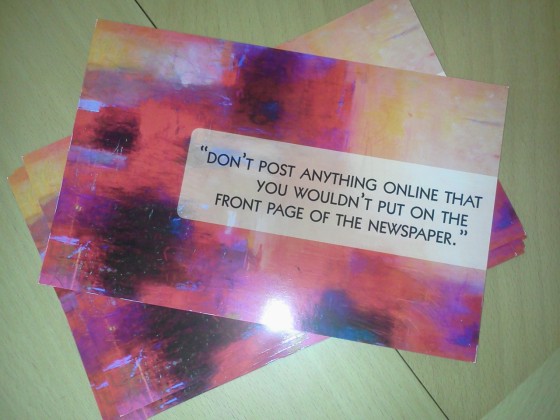Anyone who knows me knows that preventing cyberbullying is a topic I’m passionate about, especially since I experienced it myself. I wish I could make more people (of all ages) put down their phones and behave. I’ve already had to read the riot act to one 13 year-old this year because he created a thoughtless post on Instagram that could have gotten him in a lot more trouble than being confronted by a couple of angry friends and their parents.
Earlier this year I met football hall of fame member Nick Lowery and learned about his efforts with this Champions Against Bullying program. My discussions with him inspired me to look up some of the more recent statistics about cyberbullying:
Over 25% of adolescents have been bullied repeatedly through their cell phones or the internet.
Mean, hurtful comments and spreading rumors are the most common type of cyberbullying.
Cyberbullying victims are more likely to have low self-esteem and to contemplate suicide.
Reasons cyberbullies said they engaged in cyberbullying
58% – They deserved it (This sounds very middle school)
58% – To get back at someone
28% – For fun or entertainment
21% – To embarrass them
14% – To be mean
11% – To show off to friends
Bullying appears to be worst in middle school. 44% of middle schools report bullying problems compared to 20% of high schools and elementary schools.
Schools that have anti-bullying programs reduce bullying 50%.
It’s because of these statistics that this is my general message for young people about cyberbullying:
Think before you post. What you think is funny or justified in the moment may be a post or text you regret later. But once you create a post or send a text, you don’t have control over it. You can never completely delete it from the internet or servers. You never know if a post is going to go viral or when a post will follow you around for a long time.
More information about what parents can do to help keep their kids safe online is available here.
If you want to chat more about this topic, feel free to connect with me on Twitter, Facebook, YouTube, LinkedIn, or you can email me. You can also check out my post on what parents can do to address and prevent cyberbullying.
Please visit my homepage for more information about Carter Law Firm.



